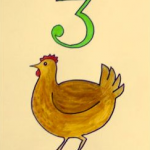Christmas parties can be a mixed blessing. They’re good to help both keep morale high and reward staff for a good year. But parties are not always without their problems– you can’t totally control all your staff, especially after a drink or two! Also,not everyone likes parties, so don’t make them compulsory, as some people find social situations too overwhelming.
Costing on average around £50 per head, produce an Office Party Policy to set expectations on behaviour, backed up with a Social Media policy warning staff not to post inappropriate photographs and risk damaging your brand’s reputation. Email all staff a couple of weeks prior to the event, attaching the policies, to bothremind them of the details of the party and your expectations of theirbehaviour, gently stating that the party is an extension of their working hours.
Remember, as the employer, you’re ultimately responsible for any shenanigans! So to avoid any pit falls and embarrassment, set up the ground rules first. Then relax and enjoy the event with your staff.
The ‘Alternative’Festive Menu
Cocktails and Wine
Can you guess which member of staff will be the one who gets a bit tipsy first?There’s always that one! Then there’s the wine lover who ends up getting a bit emotional, and the beer quaffer who may get opinionated, offering unwanted advice to all and sundry. Not forgetting the cocktail lover who thinks they’re the life and soul of the party! You know the ones. But we’re all human, and we all have our little foibles, whether alcohol induced or otherwise. So let themenjoy themselves, in moderation – you, too. Relax and enjoy a glass or three. Just remember not to make any drunken promises to your staff that could bite you in the backside later. Finally, make sure you have plenty of soft drinks available,too.
Your Starter for Ten
Everyone loves a traditional prawn cocktail or salmon starter. Or do they? Perhaps a member of your team is allergic to shellfish. Remember to check for allergies prior to the event.
Going Crackers
No Christmas meal is complete without pulling crackers, donning hats, enjoying the cheap gifts and laughing at the lame jokes. But once the crackers are pulled, keep an eye out for staff going crackers, or flirting inappropriately to try and ‘pull’ a colleague. Gentle flirting is one thing, but let’s keep it atthat, guys! Your policy should remind staff that what one person may find funny,another may find offensive – the last thing you want is a grievance about someone’s behaviour when you all return to work.
What a Turkey!
Onto the main course. Things are getting serious now … or seriously silly! But when it comes to the meat, consider those people of different faiths. Have you ensured there are Halal or Kosher choices, and vegetarian alternatives? Did you check that anyone has any other dietary needs? For the meal to be a success,and for your staff to feel appreciated, valued and listened to, getting this bit right is essential.
Brussels Sprouts – Loathe ‘em or Love ‘em?
I love Brussels Sprouts, especially stir-fried with garlic, chilli and ginger. But not everyone does. The point I’m making here is to not treat everyone the same and assume they all want or need the same thing. I’m not just talking about the festive season, either – don’t look at your staff as a whole but see them as individuals, too, with different needs.
Christmas Pud with Lashings of Brandy Butter
Of course, some people may prefer mince pies, and others may loathe desserts with dried fruit. Ensure there’s a variety of desserts available so that people don’t feel left out – just as can happen with equality issues in the workplace.It’s important to cater for and embrace all desserts, tastes, ethnicities and sexual preferences so that everyone feels included.
Secret Santa
Many people love the secret swapping of silly gifts at Christmas. But what happens when someone opens a present that they find inappropriate, or worse still,offensive? Make sure you communicate with staff well in advance of the event. Make it clear that if they want to take part in the Secret Santa, gifts should be respectable and sensible. This can be subjective, of course, but most people should understand the sort of gifts to be avoided.
Taxi!
It’s over! Everyone’s talked, eaten, laughed, joked, enjoyed a tipple or two and hopefully had fun. Now it’s time to get everyone home safely. Did you know that it’s your responsibility as the employer to ensure that drunk staff get homesafely? If budget allows, arrange mini-buses or taxis in advance, or designated drivers for groups. Or at least encourage your staff to check the last bus andtrain times and provide the number of a couple of cab companies.
Finally,if you’ve chosen to have your Christmas event mid-week (not advisable), make sure that everyone had plenty of prior warning that they are expected in work the next day, fully functioning!
Wishing you all a very Merry Christmas and a peaceful New Year!

 On the first day of Christmas, my HR Consultant gave to me, a Contract in a pear tree. Make sure that you have up to date contracts for all your employees.
On the first day of Christmas, my HR Consultant gave to me, a Contract in a pear tree. Make sure that you have up to date contracts for all your employees.
 On the third day of Christmas, my HR Consultant gave to me, three French Hens. If you have employees from Europe, keep an eye on our
On the third day of Christmas, my HR Consultant gave to me, three French Hens. If you have employees from Europe, keep an eye on our  On the fourth day of Christmas, my HR Consultant gave to me, four dreaded words. “You have been fired!” Before you rush to sack anyone, check to make sure you have a good reason and
On the fourth day of Christmas, my HR Consultant gave to me, four dreaded words. “You have been fired!” Before you rush to sack anyone, check to make sure you have a good reason and 

 On the seventh day of Christmas, my HR Consultant gave to me, seven swans-a-swimming. If, like a swan, you’re all grace and elegance above water, while below you’re frantically paddling to keep afloat of all things HR, just get in touch to see how we can help.
On the seventh day of Christmas, my HR Consultant gave to me, seven swans-a-swimming. If, like a swan, you’re all grace and elegance above water, while below you’re frantically paddling to keep afloat of all things HR, just get in touch to see how we can help.
 On the ninth day of Christmas, my HR Consultant gave to me, nine ladies dancing. And the men can dance too!
On the ninth day of Christmas, my HR Consultant gave to me, nine ladies dancing. And the men can dance too! On the tenth day of Christmas, my HR Consultant gave to me, ten lords (and ladies) leaping at the Christmas party. Make sure you lay down a few rules for proper behaviour, so that things don’t get out of hand.
On the tenth day of Christmas, my HR Consultant gave to me, ten lords (and ladies) leaping at the Christmas party. Make sure you lay down a few rules for proper behaviour, so that things don’t get out of hand. On the eleventh day of Christmas, my HR Consultant gave to me, eleven pipers piping. Make a big noise when your staff do a great job.
On the eleventh day of Christmas, my HR Consultant gave to me, eleven pipers piping. Make a big noise when your staff do a great job.  On the twelfth day of Christmas, my HR Consultant gave to me, twelve drummers drumming. I keep drumming good HR practices into my clients’ businesses, to help them grow successful companies that are great places to work.
On the twelfth day of Christmas, my HR Consultant gave to me, twelve drummers drumming. I keep drumming good HR practices into my clients’ businesses, to help them grow successful companies that are great places to work.